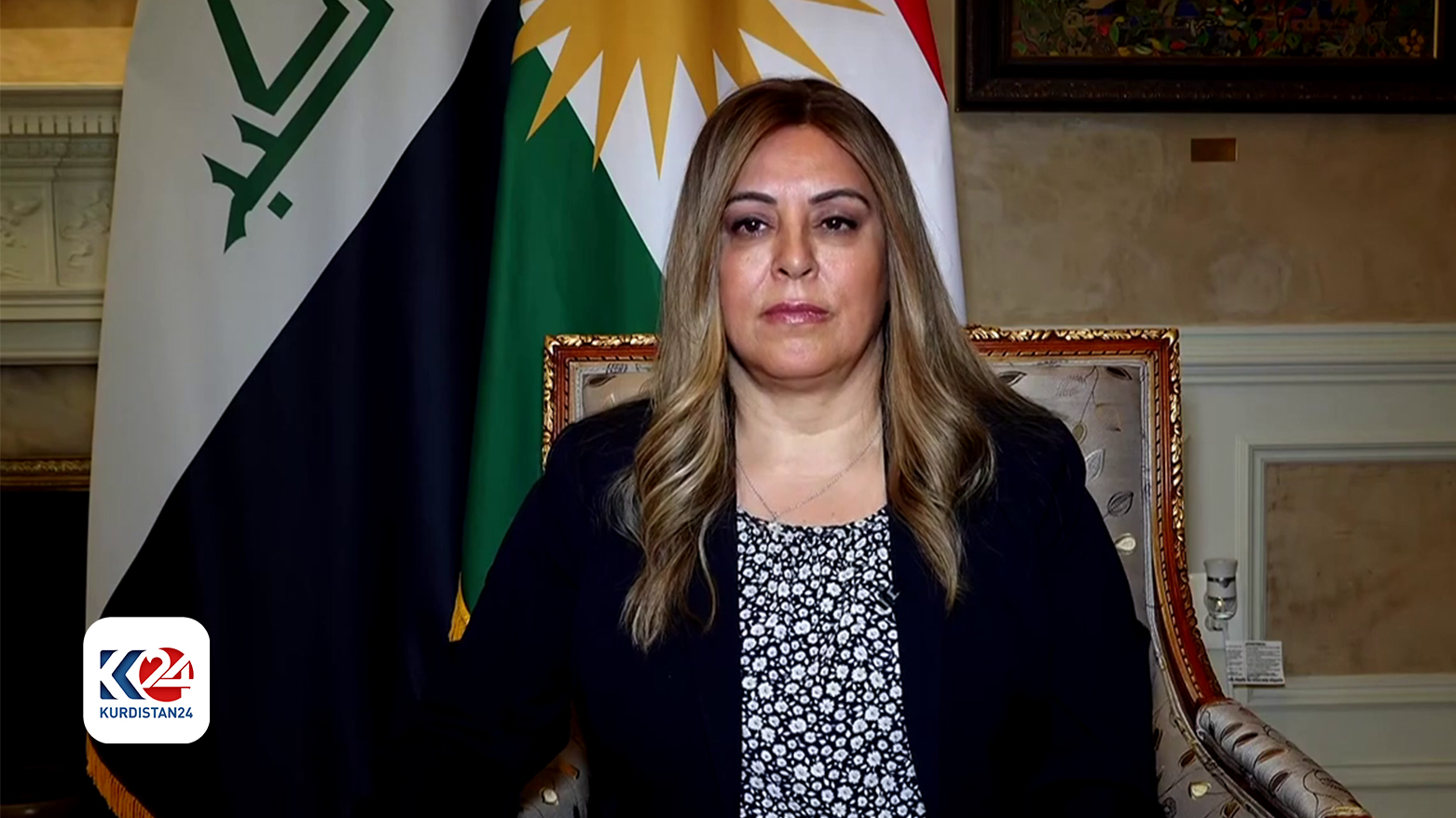KRG Representative Welcomes Trump’s Election; Predicts Continued Strong US Ties with Kurdistan Region
“We very much look forward to working with President-elect Donald Trump in his next administration to strengthen our bilateral relations and focus on issues that impact our region.”

WASHINGTON DC, United States (Kurdistan 24) - “Let me begin by congratulating President-elect Donald Trump for his victory as the 47th president of the United States,” Treefa Aziz, the Kurdistan Regional Government (KRG) Representative to the United States, told Kurdistan 24 on Thursday.
She emphasized that the KRG looked forward to continuing the strong ties with the new Trump administration that it enjoyed during Trump’s first term.
At the same time, she stressed that U.S. support for the Kurdistan Region was bipartisan, with the Kurds having enjoyed strong backing from Democrats, as well as Republicans, over many years.
Aziz’s remarks echoed those of the KRG Prime Minister and the President of the Kurdistan Region in welcoming Trump’s election.
Read More: PM congratulated Donald Trump on his victory in presidential election
Trump’s Support for Kurdistan Region
“We very much look forward to working with President-elect Donald Trump in his next administration to strengthen our bilateral relations and focus on issues that impact our region,” Aziz told Kurdistan 24.
“We expect that, like his first term,” Trump “will continue to support and be a steadfast ally and protector of Kurdistan,” she continued. “We believe that he will reaffirm U.S. support for our Peshmerga forces and continued security cooperation.”
And she added, “We also expect that we will engage quite heavily on economic prosperity and development.”
“We believe that President-elect Trump,” as in his first term, “will promote peace through strength, that his decisive leadership qualities will encourage all parties in the region to cooperate and turn to strategic dialogue to resolve issues.”
Aziz also explained that the Republican party had taken control of the U.S. Senate and appeared likely to gain a majority in the House of Representatives, as well.
“We’ll have a new Congress next year,” she said. “While we are waiting for the final count to confirm, we see that the Republicans have taken the Senate, as well as a high likelihood that will be the case in the House of Representatives, as well.”
“So we look forward to working with them,” she affirmed.
Indeed, if the Republicans succeed in gaining control of both houses of Congress, that will put Trump in a strong position to carry out his agenda, including on foreign policy.
Bipartisan Support for the Kurds
But Aziz also noted the strong support for the Kurds in the Democratic party.
“Our relationship with the United States is long term, and it’s rooted in shared values and common goals for peace and stability and economic prosperity in the region,” she said, adding “the Kurdistan Region has been fortunate to have long-standing bipartisan support from the United States government.”
“We’ve had strong, deep, robust relations with both Democratic and Republican administrations,” she stated, attributing that support to the fact that the Kurds have shown themselves “for many years now, as the most stable, reliable trusted partner of the United States in the Middle East.”
“I think we’ve seen over the past few months that the United States has been very clear about its strategic partnership” with the Kurdistan Region—“that is 360 degrees,” meaning that it is “a relationship that is not based on security and military cooperation alone,” Aziz explained.
“They are also very interested in economic development and prosperity and an open market for foreign investment,” she continued. “We in the Kurdistan Region share these values. We are very much encouraged and promote these goals.”
Issues: Resolving Erbil-Baghdad Issues; Future of Foreign Troops
“We’re hoping that any outstanding issues between Erbil and Baghdad, regarding revenue sharing, budget allocations, security arrangements, the protection of constitutional rights, will also be a priority for the administration to ensure that all of our people—Kurds, Iraqis, minorities—are living in peace and stability in the country,” Aziz explained.
The other outstanding matter concerns the anti-ISIS Coalition. Pro-Iranian elements within the Baghdad government have pressed for an end to its presence in Iraq.
In extended negotiations, Washington and Baghdad agreed that in September 2025, those forces in most of Iraq would transition from a presence based on the anti-ISIS Coalition to one based on bilateral security ties.
However, the Coalition would remain for another year in the Kurdistan Region in order to continue the fight against ISIS in northeast Syria.
Meeting on Sept. 30 in Washington, the Coalition’s Foreign Ministers confirmed the new understanding.
Read More: Defeat-ISIS Ministers Confirm Transition to Bilateral Security Ties
Indeed, the KRG views the presence of Coalition forces as a stabilizing factor. When the long-time Kurdish leader, Masoud Barzani, now head of the Kurdistan Democratic Party (KDP), paid a rare visit to Baghdad last July, he met with the U.S. ambassador, Alina Romanowski.
As Barzani explained to Romanowski, the continued presence of Coalition forces in Iraq is a national issue, transcending party lines, which is vital for the country’s stability and national interest.
Read More: KDP President Masoud Barzani meets with US Ambassador to Iraq
In speaking with Kurdistan 24, Aziz concluded on an optimistic note.
“I think the Kurdistan Region has proven, over decades, to be a strong, reliable and trusted partner,” and “that is reflected in our relationship and our strategic agreements, and I believe that will continue under a Trump administration.”